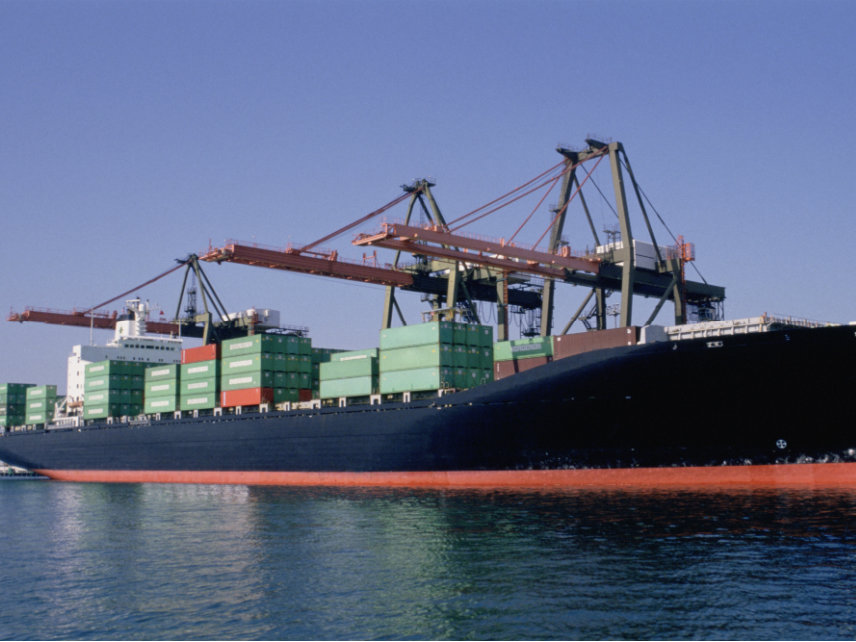The Jones Act Is an Antiquated, Protectionist Policy Failure. Mike Lee Is Aiming to Kill It.
The Utah senator wants a world where "Alaskans, Hawaiians, and Puerto Ricans aren't forced to pay higher prices for imported goods."

If you wanted to ship some widgets to Jamaica, you could hire literally any ship on the open oceans to make the delivery. But if you wanted to send the same cargo to Puerto Rico, you'd be allowed only to hire a ship that was built in America, crewed by Americans, and operating under the American flag.
The reason? The Jones Act, a vestige of the 1920s that prohibits non-American ships from carrying cargo from one American port to another American port—including ports in American territories, such as Puerto Rico, Guam, and other far-flung islands. You don't have to work in the export business or have a degree in economics to see how that this is blatant protectionism for American shipping companies. And, indeed, shipping costs from the U.S. mainland to Puerto Rico are twice as high as prices to ship the same goods to neighboring islands.
Those higher costs get passed along to consumers in American territories and in states like Hawaii and Alaska, which import much of their food from the lower 48. But those states don't get much of a say in Congress, so the Jones Act has persisted for decades. It's a clear example of public choice theory: American shipping companies enjoy concentrated benefits (being able to charge higher prices because of artifically limited competition) while the residents of Alaska and America's island states and territories pay the diffuse costs.
"Restricting trade between U.S. ports is a huge loss for American consumers and producers," says Sen. Mike Lee (R–Utah), who introduced a bill this week to repeal the Jones Act. He's from a landlocked state himself, but Lee says it's long past time to act, "so that Alaskans, Hawaiians, and Puerto Ricans aren't forced to pay higher prices for imported goods—and so they rapidly receive the help they need in the wake of natural disasters."
Lee's bill, the Open America's Water Act of 2019, would simply allow any otherwise qualified vessel to engage in trade between U.S. domestic ports. If a ship can carry cargo from Miami to Jamaica, it could also carry cargo from Miami to Puerto Rico.
The Jones Act got a bit of attention back in 2017, when President Donald Trump waived the law for a brief period after Hurricane Maria devastated Puerto Rico. An attempt to permanently exempt Puerto Rico from the Jones Act failed in Congress as shipping companies argued that their right to earn artifically higher profits was important enought to force hurricane-ravaged Puerto Ricans to continue suffering artificially higher prices.
One of the great ironies of the Jones Act is that, for all the economic damage it causes, it hasn't even achieved its primary policy goal of strengthening the U.S. shipbuilding industry. The number of ships that meet the Jones Act's requirements for operating between American ports has shrunk from 193 in 2000 to just 99 in 2018. It costs more than three times as much to build a cargo ship in America as it does in some other countries, according to a 2017 report from the Cato Institute, and American shipping companies respond to that incentive by buying foreign-built ships. That means there are fewer ships capable of serving American ports, and fewer ships means higher prices.
Meanwhile, the median income in Puerto Rico is less than half of what it is in the poorest U.S. state. But thanks to nonsensical laws like the Jones Act, the cost of living there is higher than the U.S. average.
Lee's proposal should be a slam dunk in Congress. Unfortunately, it likely faces a difficult path forward.


Show Comments (45)